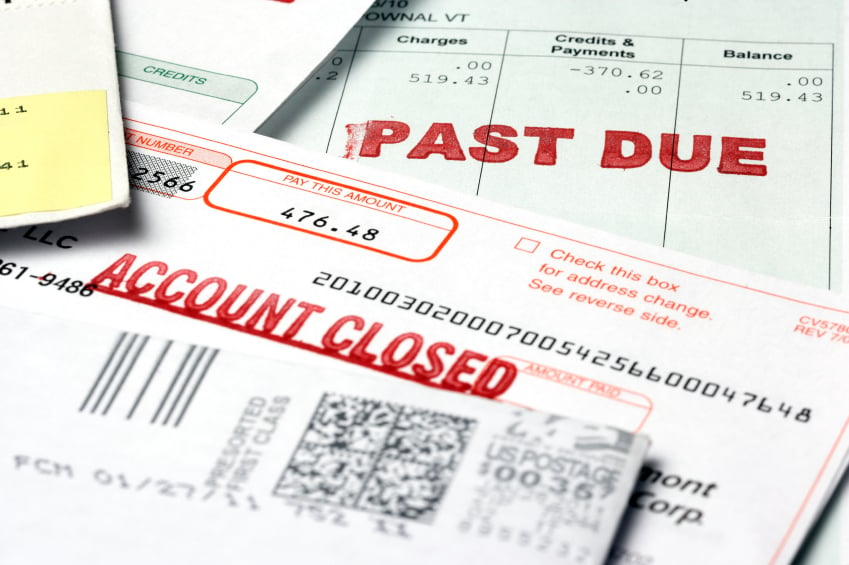
Past due bills | iStock.com
Financial problems
have a way of sneaking up on you. At first you may start borrowing
money to make a purchase or using your credit cards a little too often.
Before you know it, you’re facing a mountain of debt. You may be content
with denying you have a problem with managing money. However, burying
your head in the sand will catch up to you if you don’t take the proper
steps get things under control. Here are a few signs you’re headed for
financial disaster.
1. You often borrow money from friends and relatives

Money | Thinkstock
Many of us run into a financial snag from time to time, but if you find yourself constantly
asking your friends and family for a loan,
and you have trouble paying them back — or at all — this is a warning
sign. In addition, borrowing money from loved ones and repaying late or
not returning the money can lead to even more strain in your personal
life.
2. Bill collectors are calling you — and it’s not to say hi

Phone call | Justin Sullivan/Getty Images
Ignoring your bills won’t make them go away. You may feel a temporary
sense of comfort and relief when you toss your bills into a pile on
your desk, but that won’t resolve the issue. Your money problems will
just continue to worsen. Soon enough, your
creditors may come looking for you.
3. You rely heavily on credit

Using credit card | iStock.com
If you often
reach for your credit card,
even for small purchases, this is an indication that you are spending
more than you earn. Relying too heavily on credit and maintaining a
balance from month to month can cause your debt to balloon, leading to
even more financial strain. When you get to a point where you can’t
afford basics like groceries or gas, it’s time to reevaluate your
budget.
4. You’re living paycheck to paycheck

Burning money | iStock.com
If you find that you frequently overdraft and you’re just barely
making it from one paycheck to the next, you are living on the financial
edge. Burning through your cash faster than you earn it is asking for
trouble. All it takes is one major financial emergency to put you in a
crisis. The key is not to wait until a crisis hits before taking action.
Once you start to see that you’re experiencing financial difficulty,
begin looking for ways to either spend less or bring in more money.
5. You tell financial lies

Lying about money | iStock.com
Are you making purchases and
lying to your partner about it? Are
you gambling your paycheck away or excessively shopping? If you have
lost control of your spending and you’re going to great lengths to
conceal your behavior, this could put you at risk for serious financial
trouble down the road. Furthermore, taking a reckless approach to money
could point to some areas that need to be addressed concerning your
mental health.
Meeting with a therapist may help you figure out if you have a deeper problem that requires exploration.
Culled from Money & Career Cheat Sheet:






No comments:
Post a Comment